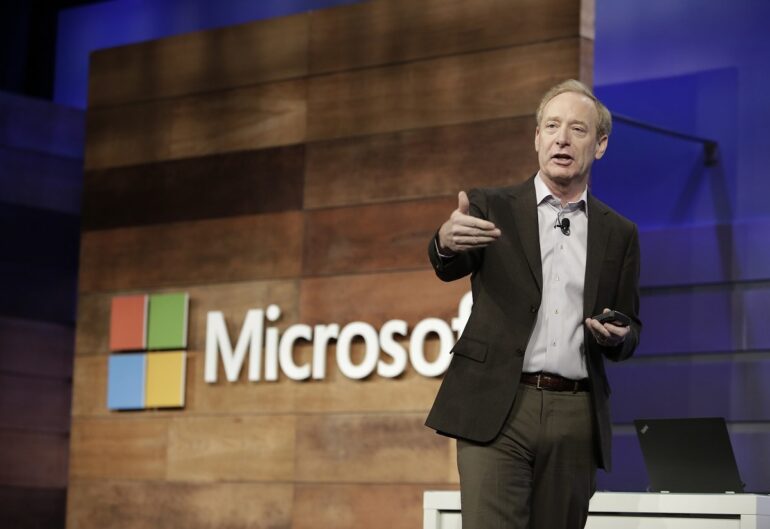TL;DR:
- Microsoft President Brad Smith emphasizes the need for AI regulation in Europe.
- Smith, along with influential figures like Elon Musk, seeks to engage regulators and lawmakers on the topic.
- Big Tech companies, including Microsoft, propose suggestions to effectively regulate AI and safeguard their businesses.
- The European Union is developing the AI Act, which could set a global benchmark for AI regulation.
- Microsoft’s five-point blueprint for governing AI aligns with the EU’s proposed legislation.
- Smith encourages global collaboration on AI governance among the EU, the United States, G7 countries, India, and Indonesia.
Main AI News:
Microsoft President Brad Smith has taken his mission to shape the AI regulation debate across the Atlantic, engaging with European stakeholders on the subject. Building on his previous advocacy efforts in Washington, Smith emphasized the advantages of regulating artificial intelligence during a speech in Brussels, echoing a sentiment he conveyed during his US visit.
Partnering with influential figures such as Twitter owner and Tesla CEO Elon Musk, Smith has been actively courting regulators and policymakers, urging them to embrace AI regulation. This technology, which has captivated the public’s imagination, experienced a surge of interest with the introduction of Microsoft-backed OpenAI’s ChatGPT.
In an effort to safeguard their businesses, major tech companies have proposed recommendations on how to effectively regulate AI. By doing so, they hope to mitigate the potential impact of stringent regulations. As the European Union diligently crafts the AI Act, a pioneering set of rules that could serve as a global precedent, Big Tech’s input becomes increasingly relevant.
Expressing Microsoft’s commitment to constructive engagement, Smith stated, “Our intention is to offer valuable insights to guide future endeavors.” These sentiments were reiterated at a prominent conference in Brussels, further underscoring Microsoft’s dedication to the cause.
Microsoft’s comprehensive blueprint for AI governance encompasses five key pillars. This framework advocates for government-led AI safety frameworks, the implementation of safety brakes for AI systems controlling critical infrastructure, and the promotion of academic access to AI. Significantly, these proposals align harmoniously with the EU’s proposed legislation.
Moreover, Smith called upon the EU, the United States, G7 nations, as well as India and Indonesia, to collaboratively establish AI governance frameworks rooted in shared values and principles. By fostering cooperation and unity, these countries can collectively address the challenges posed by AI while capitalizing on its immense potential.
As the debate surrounding AI regulation gains momentum, Microsoft’s proactive approach underscores its commitment to shaping the future of this transformative technology. By actively engaging with policymakers and offering valuable guidance, the company aims to ensure that AI is developed and deployed responsibly, in accordance with societal interests and global best practices.
Conclusion:
Microsoft’s proactive efforts, led by President Brad Smith, to shape the AI regulation debate in Europe demonstrate the company’s commitment to responsible and informed development of artificial intelligence. By engaging with stakeholders and offering valuable insights, Microsoft aims to influence the future direction of AI regulation. This proactive stance signifies Microsoft’s recognition of the importance of regulatory frameworks in addressing societal concerns and ensuring the sustainable growth of the AI market. The alignment of Microsoft’s blueprint with the EU’s proposed legislation further strengthens its position as a responsible industry leader. As the AI Act takes shape, this active engagement positions Microsoft favorably in navigating the evolving AI landscape and reinforces its commitment to ethical and accountable AI deployment.

